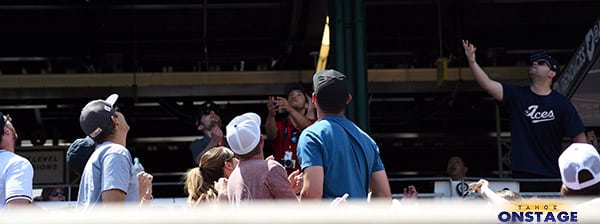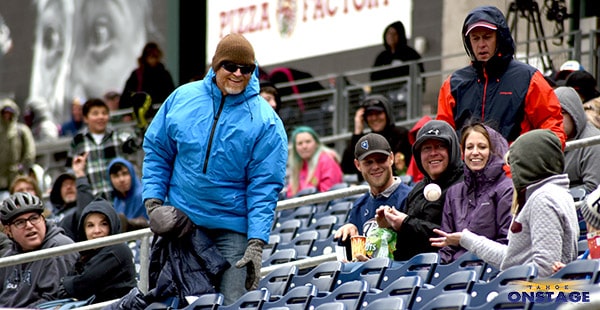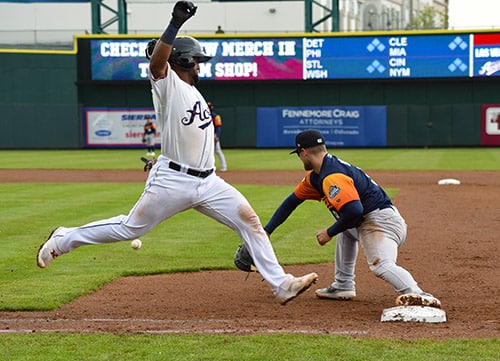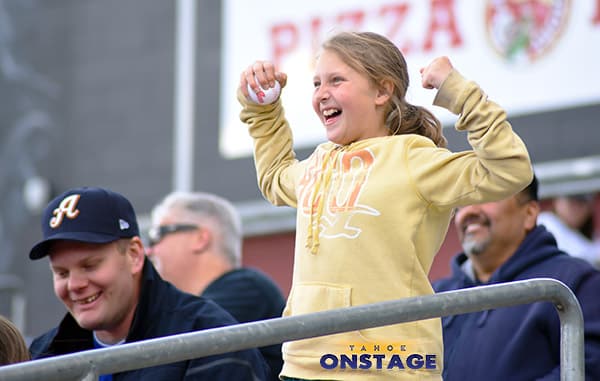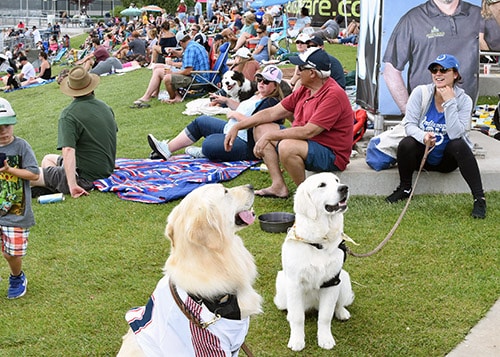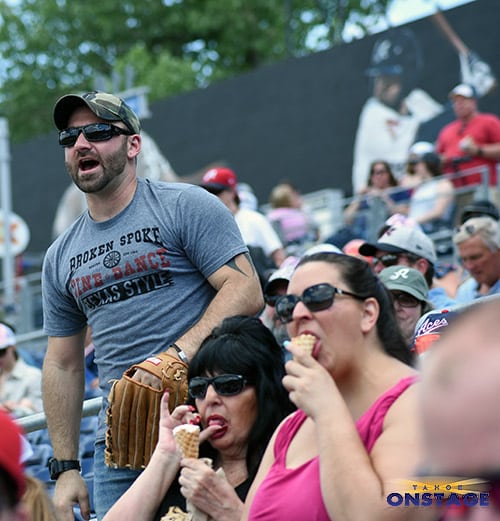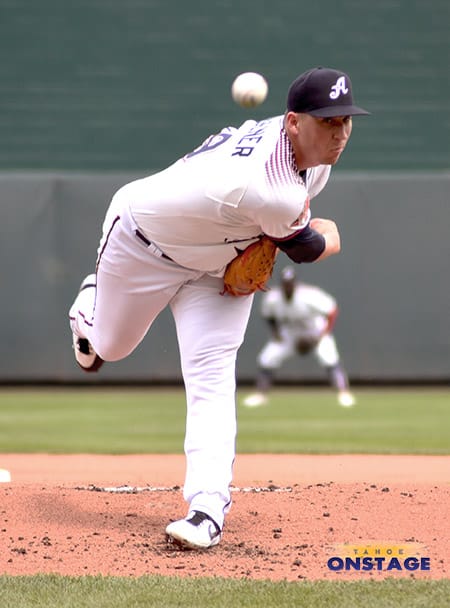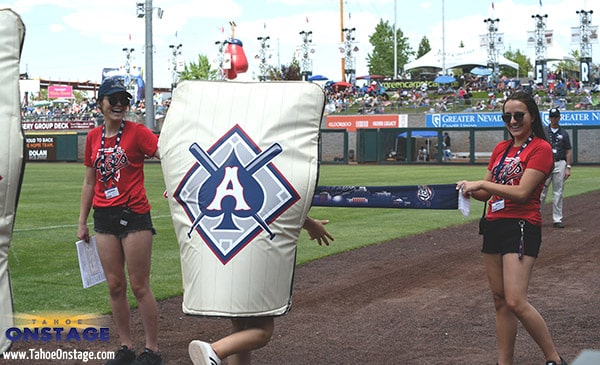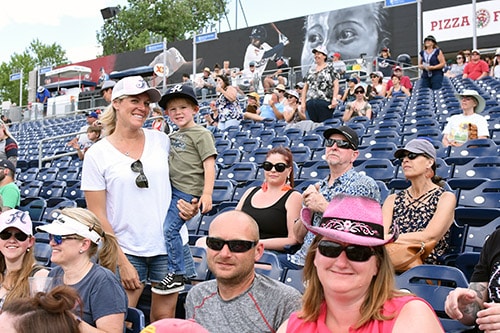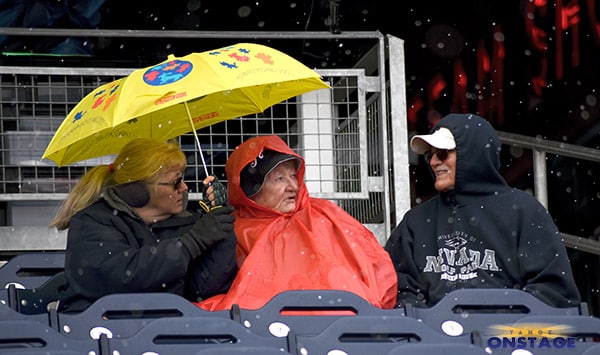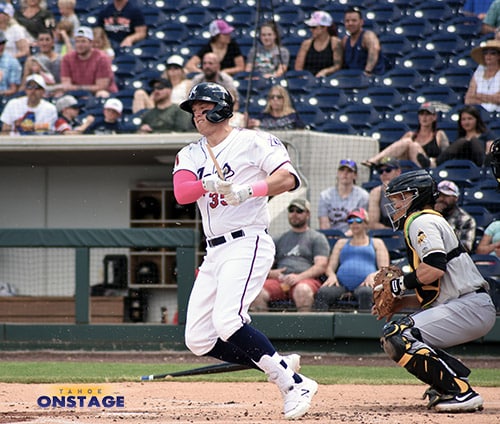
Tim Parsons / Tahoe Onstage photos
Covid-19 didn’t put the future of Minor League Baseball at stake, it only sped up the process.
By next season, a quarter of minor league teams will be dismantled and reconfigured. Not having a 2020 MiLB season has put hundreds of minor leaguers out of work while limiting development of the prospects fortunate enough to crack a MLB roster.
With so much uncertainty for the present and future of Minor League Baseball, it ultimately affects the game we enjoy, from the players on the field to fans cheering in the bleachers.
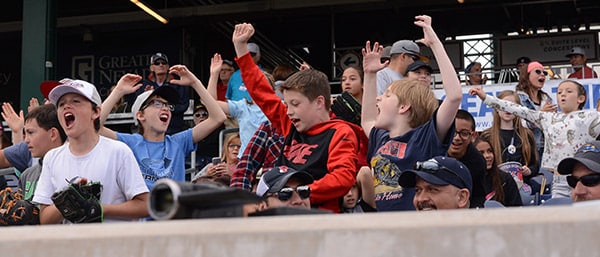
Minor League Baseball is headed toward drastic change, and the minor league system will look vastly different by 2021. JJ Cooper of Baseball America reported in April that MiLB is expected to agree to a 25 percent reduction to the number of affiliated teams, cutting 160 squads down to approximately 120.
This reduction is part of a lengthy proposal put together in 2019 as part of MLB’s overhaul of the minor league system called The Professional Baseball Agreement.
The proposal effectively eliminates short-season and rookie minor league baseball leagues across the country. The minor leagues consist of six levels, ranging from Rookie to Triple-A. MLB’s proposal would erase two of the six levels, leaving Low Class A, High Class A, Double-A and Triple-A.
Low Class A and High Class A are the first levels that adhere to a typical 140-game season as a player progresses through the minors. Rookie levels and short-season leagues consist of 60 and 76 games.
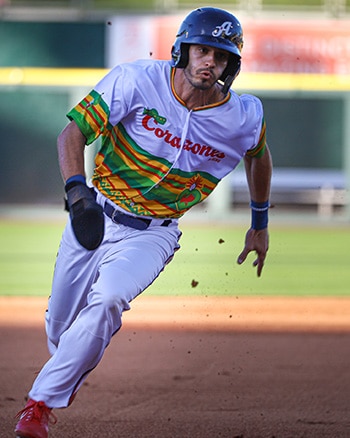
Rookie and single-season leagues still hold value, and shouldn’t be taken for granted. They serve introductory levels for players who get the once in a lifetime chance of playing professional baseball. Several teenage phenom prospects listed on MLB Pipeline and Baseball America’s Top 100 lists played for their organization’s rookie or single-season leagues last season.
An official list of teams that would be erased hasn’t been released yet, but it was first reported by Baseball America that up to four Double-A teams, four High A teams, six Low A teams, 11 short-season teams and 17 rookie-ball teams can be eliminated.
It will be a drastic change to baseball as a whole. Several leagues within the minors will gain or lose a number of teams. For example, a Low Class A team can become Double-A team and vise versa. The team itself may keep its name and affiliation, but it might switch levels.
This decision also potentially affects the Reno Aces. The 14-team Triple-A International League is expected to increase to 20 teams while the Aces’ Pacific Coast League is expected to shrink to 10 teams.
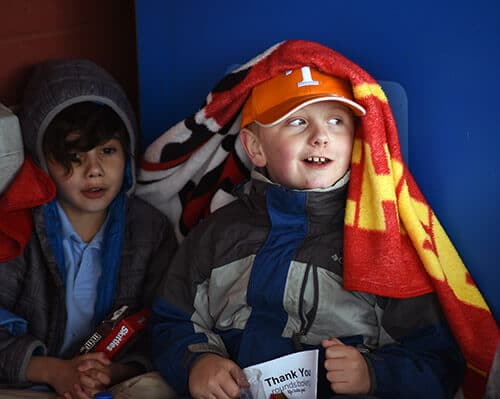
The PCL now has 16 teams and are affiliates for the Arizona Diamondbacks, San Francisco Giants, San Diego Padres, Los Angeles Dodgers, Oakland Athletics, St. Louis Cardinals, Houston Astros, Kansas City Royals, Chicago Cubs, Colorado Rockies, Los Angeles Angels, Seattle Mariners, Texas Rangers, Milwaukee Brewers, Washington Nationals and Miami Marlins.
Reno opened its franchise in 2009 and has been a part of the Pacific Coast League ever since. The Aces won their first Pacific Coast League title and Triple-A National Championship in 2012.
Despite the obstacles ahead, Reno Aces president Eric Edelstein is optimistic for next season.
“There should still be a tremendous amount of optimism,” Edelstein said in a Tahoe Onstage interview. “The world will look different, but that’s when the affordable entertainment of Minor League Baseball takes center stage. It gives us an escape from the challenges of life, and it will be that way again.”
Under the terms of the Professional Baseball Agreement, MLB hopes to rearrange all remaining 120 minor league teams while improving facilities and cutting down on travel costs. There is reportedly going to be an increase in salary for minor leaguers too. As a whole, the plan is to create an efficient minor league system dedicated toward developing players while cutting down on the cost and time of travel.
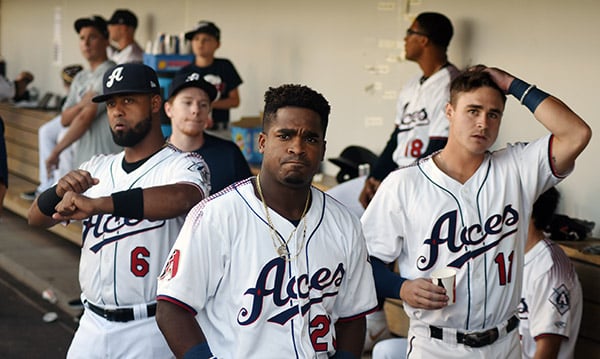
The elimination of 42 minor league teams takes away a large chunk of a player’s growth. Most rookies drafted by their major league organization get their feet wet in short-season or rookie levels. Under the new plan, many rookies would be thrusted into Low Class A and could struggle to adjust.
Cutting out minor league teams is going to have a substantial impact for the future, but not having a 2020 MiLB season is hurting baseball. Players who didn’t make their MLB team’s 60-man roster are essentially without a job for the year. As a result, several players are playing overseas or are part of an independent baseball team.
That doesn’t make up for the hundreds of others who suddenly were released from their organization following the Covid-19 measures. Last year’s Reno Aces members left off the 60-player pool include center fielder Ben DeLuzio and Jamie Westbrook.
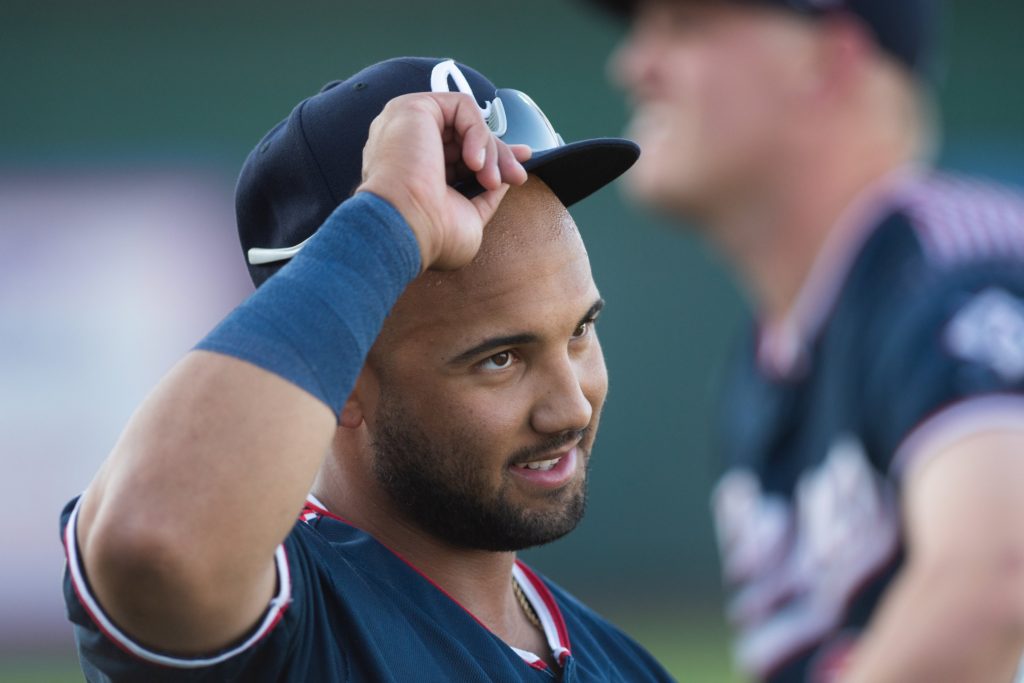
Westbrook was on the brink of his MLB debut with the San Francisco Giants this season. As the pandemic struck, Westbrook was released and is currently playing independent baseball with the Sugar Land Lightning Sloths.
“I was pretty numb when I found out. It didn’t really feel real,” Westbrook said in a Tahoe Onstage interview. “It still doesn’t feel real to me at times. But all I can do is keep playing and hopefully be ready for the next opportunity.”
If the minors suddenly return to “normal” next year, what will happen to those players? Will they be able to get a second chance?
When a player makes the 60-man roster, it still creates a quirky situation. Players not on the active big league roster are playing intrasquad scrimmages against fellow teammates at an alternate training facility. No MiLB season means prospects cannot play against opposing teams over the course of a season.

Reno Aces manager Chris Cron is serving as the Diamondbacks’ Summer Camp Coordinator, and he’s adjusting to a different playing environment.
“It’s kind of a makeshift thing going on right now,” Cron said in a Tahoe Onstage interview. “We have coaches playing in the field. We don’t have umpires all the time, so we’re our own umps for games.”
Players who have a chance to get called up to the majors may not get the opportunity if they are not on the 40-man roster, which would force a team to option a player down as a corresponding move.
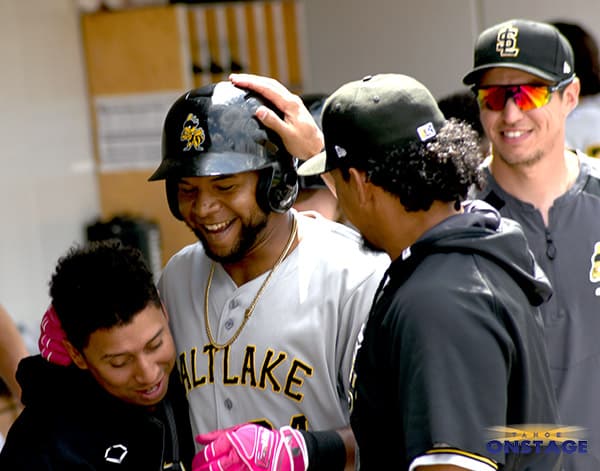
Tim Parsons / Tahoe Onstage
To sum it up, players on the 60-man roster who don’t get called up this year are regulated to train at a team’s facility. That is a completely different aspect to a typical MiLB season, where hundreds of teams compete against each other in the regular season and postseason, as it is in the big leagues.
Covid-19 forced MLB to find a way to help select prospects develop this year, and it’s making the most out of these unprecedented times. Baseball America reported on Aug. 15 that MLB teams may be able to add 15 more players to their alternate training site. While that would be beneficial for players to get a chance to play, it could create more chaos and confusion in the process.
Minor League Baseball serves as building blocks toward a professional player’s development. It also has a huge financial impact in dozens of U.S. cities. The cancellation of a 2020 season hurts minor league teams financially. In a survey conducted by Sports Illustrated, 24 team representatives said the revenue lost from this season will impact their ability to operate next season. Twelve of the representatives that took part in the survey were Double-A teams, while 13 were Triple-A teams stating that they were “extremely concerned” about operating next season.
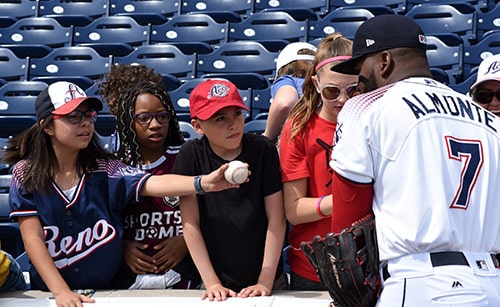
This year’s cancellation spreads deeper than the product on the field. Hundreds of employees and staff members within Minor League Baseball were laid off in the process. Behind the scenes, employees are building the foundation of a successful MiLB season built around promotions to get fans coming to the ballpark.
Many minor league teams don’t have viewable outlets for the public, so the season is built around enticing promotions to get families and others coming to the ballpark. It is one of the many reasons that makes the experience so enjoyable for fans. It provides professional baseball at an affordable cost so anyone can watch a game. Without fans, a season isn’t economically possible.
Last but not least, fans across the globe have been affected by this pandemic. Minor League Baseball gives people a chance to watch a game at an affordable cost in hundreds of cities across the U.S. Only 18 states occupy all 30 MLB teams, but hundreds of minor league affiliates are spread across the country.
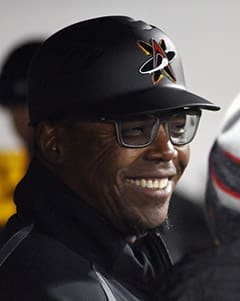
Fans have the chance to watch teams such as the Toledo Mud Hens, El Paso Chihuahuas, Louisville Bats, Montgomery Biscuits, Jacksonville Jumbo Shrimp and a slew of others across the land. If the minor leagues are cut down to 120 teams next season, that will shrink the number of available games for fans.
Minor League Baseball has established roots in the game since 1901, and it has expanded over time. But that may come to an end next season, as the minor league system as we know it will drastically change with eliminated teams and league switches.
One of the hidden joys of Minor League Baseball is seeing a player’s gleaming smile playing the game they love. The odds of making it to the big leagues isn’t likely, but it doesn’t stop their drive to play and savor every moment.
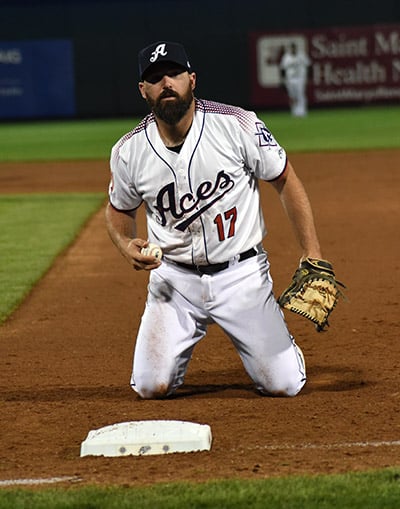
Tim Parsons / Tahoe Onstage
Players such as Cody Decker only appeared in a handful of MLB games, but his 11-year career was full of unforgettable laughs and moments. He’s an example of how baseball — regardless of what level — can become an influential piece of our lives.
“I know that one of these days I am going to have to get a big boy job. But until then, I will play every game as if it were my last,” Decker said in a Tahoe Onstage interview.
The landscape of Minor League Baseball will be drastically different come next season, but the memories it creates for anyone involved won’t change.
— Isaiah Burrows
Photo gallery: Fun around the yard 2019
